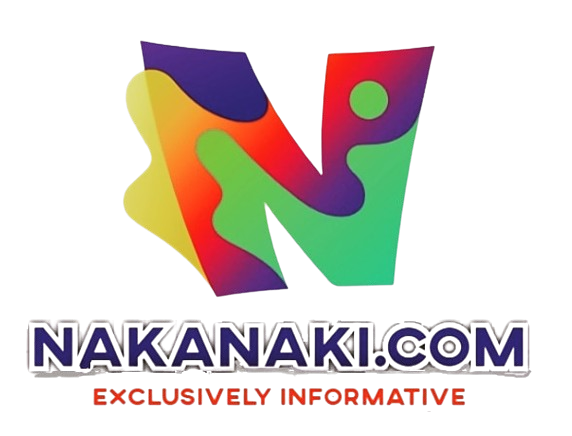
Introduction to Specialized Immigration Streams
Canada offers a diverse range of specialized immigration streams designed to accommodate individuals with unique skills, qualifications, and aspirations. Beyond the well-known Express Entry and Provincial Nominee Programs (PNPS), these alternative pathways are tailored for various groups such as skilled tradespeople, entrepreneurs, international students, and temporary workers. These specialized streams provide distinct routes to permanent residency, often granting opportunities to those who might not otherwise qualify under traditional immigration channels.
One prominent group benefiting from these specialized pathways are skilled tradespeople. Through programs like the Federal Skilled Trades Program (FSTP), experienced tradespersons can apply directly, emphasizing their unique abilities in fulfilling labor market needs. Additionally, the Start-Up Visa Program encourages entrepreneurs to bring innovative business ideas to Canada, thereby fostering economic growth and job creation.
International students also find promising opportunities through pathways like the Post-Graduation Work Permit Program (PGWPP) and various province-specific initiatives. These routes make it easier for students to transition from temporary study permits to becoming permanent residents, rewarding the investment they made in Canada’s education system. Similarly, temporary workers can leverage the Canadian Experience Class (CEC) to obtain permanent residency by utilizing their Canadian work experience.
For those considering these specialized pathways, credible sources of information are paramount. The official Canada immigration website (canada.ca) serves as a primary resource, offering detailed guidelines and updates on different immigration programs. Additionally, provincial websites and federal resources provide valuable insights into region-specific opportunities and requirements. Together, these channels ensure prospective immigrants are well-informed and guided through the application process, making Canada’s diverse specialized immigration streams accessible and transparent.
Necessary Documents and Financial Requirements
Navigating the various specialized immigration streams to Canada requires meticulous preparation and documentation. Applicants must gather a comprehensive range of documents that attest to their qualifications and ability to contribute to Canadian society. Commonly required documents include proof of education, such as diplomas or degree certificates, and transcripts to validate one’s academic credentials. Work experience must be substantiated with employment letters, pay stubs, and references from previous employers. These documents collectively help demonstrate the applicant’s professional background and readiness for employment in Canada.
Language proficiency is another critical component, often necessitated by tests such as the International English Language Testing System (IELTS) or the Canadian English Language Proficiency Index Program (CELPIP). The scores from these exams are pivotal in evaluating the applicant’s ability to communicate effectively in English or French. Additionally, obtaining a police certificate from every country where the applicant has lived for more than six months post the age of 18 is mandatory. This certificate serves to attest that the individual does not have a criminal record that would disqualify them from entering Canada.
Medical examinations are required to ensure that the applicant and any accompanying family members are in good health and will not pose a burden on Canada’s healthcare system. Financial documents are also crucial, demonstrating the applicant’s ability to support themselves and their dependents. This often includes bank statements, employment letters offering future employment in Canada, and other proof of funds.
The financial costs associated with the application process can vary but generally include fees for language tests, medical exams, biometrics, and application processing fees. For instance, language proficiency tests like IELTS could cost approximately CAD 300, medical examinations around CAD 200, and biometrics fees are typically CAD 85. The application processing fee often starts at CAD 1,325 for a single applicant. Additionally, applicants might incur extra costs if they choose to hire an immigration consultant, with fees ranging from CAD 2,000 to CAD 5,000 depending on the complexity of the case.
Step-by-Step Application Process
Embarking on the journey to immigrate to Canada through specialized streams necessitates a methodical approach. Below, we detail the step-by-step application process to guide you through each stage efficiently.
1. Initial Eligibility Checks
Before beginning the application, you must determine if you meet the eligibility criteria for your chosen stream. This involves reviewing specific requirements such as work experience, language proficiency, education, and other factors. Online tools and self-assessment questionnaires available on government websites can be highly beneficial in this phase.
2. Gathering Necessary Documentation
Once eligibility is confirmed, the next step involves collating all required documents. Common documents include proof of identity (e.g., passport), educational transcripts, work reference letters, language test results (IELTS, CELPIP), and medical exam reports if applicable. Be meticulous, as incomplete documentation can lead to delays or rejection.
3. Submitting the Application
With all documents in hand, proceed to complete the application form specific to your selected immigration stream. Online submission is typically preferred, offering quicker processing times and the convenience of digital uploads. Verification of submitted information and adherence to guidelines are crucial here.
4. Application Review and Assessment
Following submission, your application will enter a review phase. Immigration officials will examine your information and documents to ensure everything is accurate and meets the criteria. This stage can take several weeks to months depending on the stream’s popularity and the completeness of your application.
5. Attending Interviews or Medical Examinations
If additional information or verification is required, you may be asked to attend an interview or a medical examination. Interviews may focus on validating your work experience or intent, while medical exams ensure you meet health standards. Preparing well for these can significantly influence the application’s outcome.
6. Receiving a Decision
Upon completion of the assessment, you will receive a decision regarding your application. A successful outcome will include further instructions on steps for obtaining your visa or residency card. In case of rejection, feedback is often provided, allowing for improvements in future applications.
Practical Tips
To enhance your chances of a positive outcome, maintain organized records of all documents, stay updated on any changes to immigration policies, and consider consulting with an immigration advisor. Ensure that your application highlights your strengths and address any potential weaknesses proactively.
The duration of the entire process varies but typically ranges from several months to a year, emphasizing the importance of thorough preparation and timely submission.
Strategies for Success in Alternative Immigration Streams
Maximizing your chances of success in alternative immigration streams to Canada involves a combination of thorough preparation, strategic planning, and continuous improvement. For those exploring these specialized pathways, diligence in understanding the specific requirements and timelines is crucial.
One of the foundational strategies involves improving language skills. Proficiency in English or French significantly enhances an applicant’s profile. Consider investing in language courses or certifications to boost your scores in recognized tests such as IELTS or TEF. High language scores not only make you more competitive but also open up additional points in various immigration streams.
Gaining relevant work experience is another critical component. Specialized streams often value practical experience in certain industries or professions. Aligning your career with sectors that are in demand in Canada can be highly advantageous. Consider internships, volunteer roles, or short-term contracts in your field to build a robust professional background.
Engaging with Canadian professional communities can also substantially impact your application positively. Networking with professionals in your industry can provide valuable insights and connections. Joining Canadian associations, attending relevant conferences, and participating in webinars can help you understand the job market and cultural dynamics better.
Common pitfalls to avoid include neglecting thorough research and failing to meet specific documentation requirements. Ensure all forms are accurately filled out and all necessary documents are submitted. Regularly checking updates from official Canadian immigration websites can help you stay informed of any changes in criteria or processes.
Real-world examples further underscore the success achieved through these strategies. For instance, Marie, a software engineer from Brazil, improved her English proficiency through consistent practice and secured a job offer from a Canadian tech company, which eventually led to her successful immigration through the Global Talent Stream. Similarly, Dev, an experienced cook from India, leveraged his specialized culinary skills and networked within the Canadian restaurant industry, enabling him to secure a job and successfully immigrate through the Agri-Food Immigration Pilot.
These practical insights and success stories highlight that alternative pathways to immigration in Canada are viable options for applicants willing to invest time and effort in their preparation and continuously enhance their profiles.


